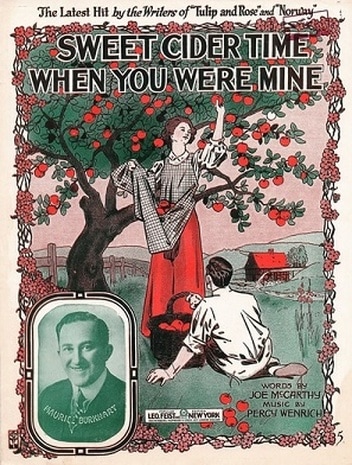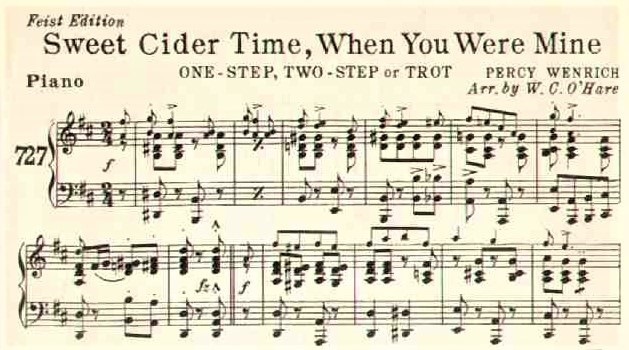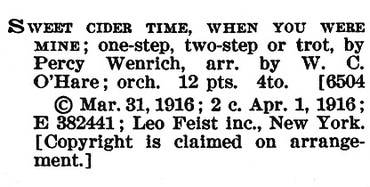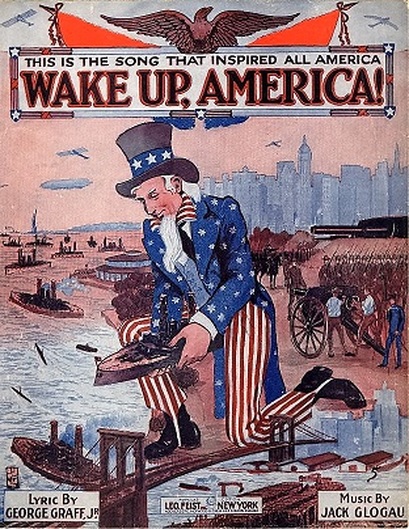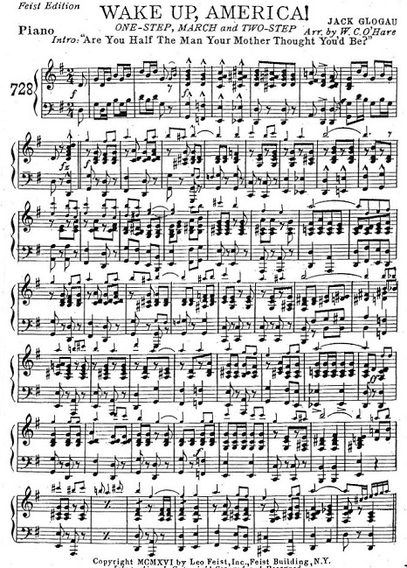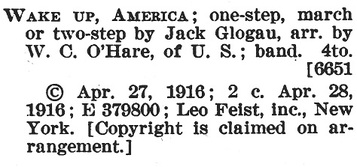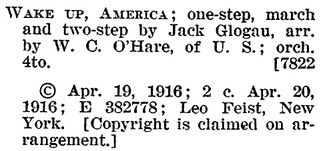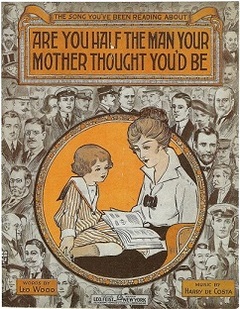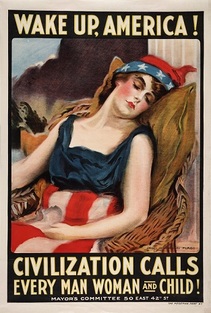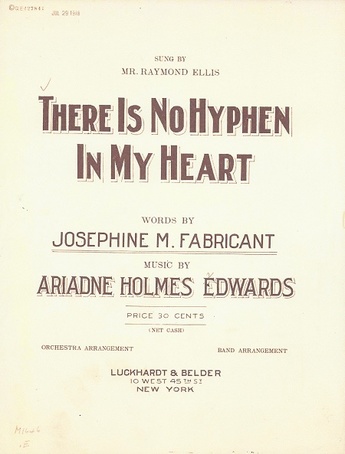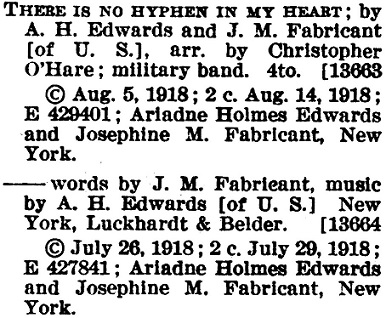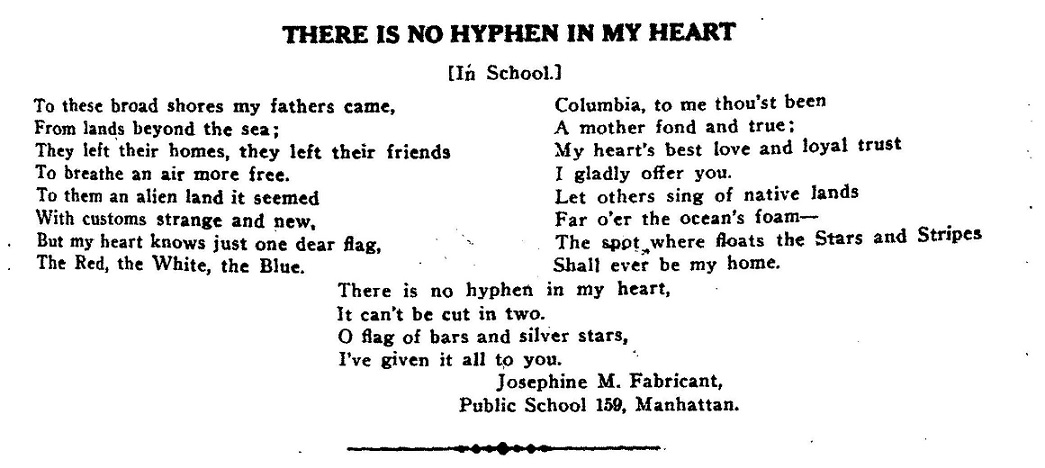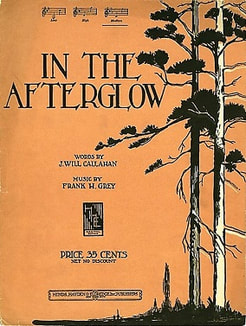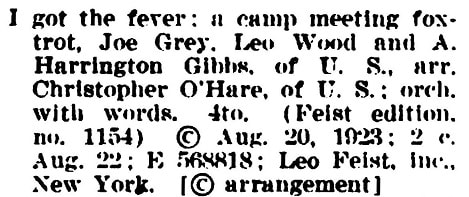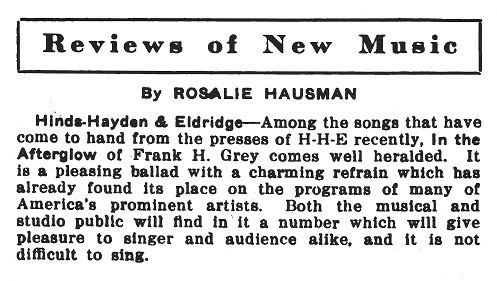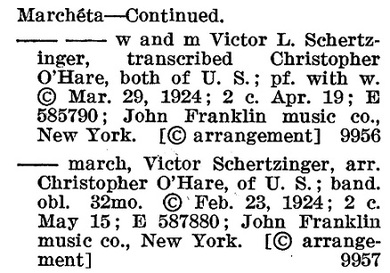Sweet Cider Time When You Were Mine (Feist, 1916)
Wake Up, America! (Feist, 1916)
|
O'Hare's 1916 orchestration of Wake Up, America! introducing Are You Half the Man Your Mother Thought You'd Be?
|
World War I poster promoting citizens' support of the war.
|
There Is No Hyphen in My Heart (Edwards & Fabricant, 1918)
In 1918, W. C. O'Hare completed the band score for what sounded like an an obscure, insignificant piece. The discovery of the mysterious title's historical significance and the song's frequent appearance in World War I era publications have led me to include it.
At a time when O'Hare increasingly focused on music aimed at use in school classrooms, lyricist Josephine M. Fabricant--a New York City Public Schools teacher whose parents were Czech immigrants--wrote a poem first published in School, the "voice" of New York City public education. Fabricant's poem reappeared in the April issue of the Journal of Education and was soon reprinted in newspapers across the U.S.
By July, Ariadne Holmes Edward's musical setting had been copyrighted, quickly followed by O'Hare's band score and an unlocated orchestra score that was likely O'Hare's, too.
By July, Ariadne Holmes Edward's musical setting had been copyrighted, quickly followed by O'Hare's band score and an unlocated orchestra score that was likely O'Hare's, too.
|
By September, sheet music and band and orchestra arrangements were being advertised, and at least one performer, as well as soldiers in their camps, were said to be singing Fabricant's words promoting undivided national loyalties. The song quickly caught on in New York City:
The anthem of the Public School of New York City with its cosmopolitan population is the song of Josephine M. Fabricant, the poet-teacher, There Is No Hyphen in My Heart. --School, November 15, 1918 |
The history behind Fabricant's poem, which eventually led to O'Hare's arrangement(s) is too complex to include here but too interesting to ignore. It will be found in the second blog entry: "War on the Hyphen: Story Behind a WWI Song."
|
In the Afterglow (Hinds, Hayden & Eldredge, 1919)
|
I Got the Fever (Feist, 1923)
|
Marchéta (John Franklin, 1924)
Due to copyright, I am not posting my mp3 scan of the roll in my collection.
Washington Birthday March (1931)
|
Written for the bicentennial of George Washington's birth, Washington Birthday March appears in the Washington, D.C. Bicentennial Committee's The Music of George Washington's Times as a recommended selection for bicentennial celebrations.
Composer Mary Pickens Opie was born Mary Thomas Pickens in Alabama and in 1915 married Thomas Fletcher Opie, son of a Virginia State Senator, John N. Opie. Co-founder of Staunton, Virginia's Evening Leader in 1904, Thomas Opie worked as the paper's city editor but later earned a Divinity degree and served in Virginia and North Carolina before becoming the rector of Olney, Maryland's St. Bartholomew Episcopal Church. |
Best known for her Communion Hymn ( G. Schirmer, 1929), which is still performed, Mary Pickens Opie composed several other copyrighted pieces, mostly unpublished. How O'Hare came to arrange Mary P. Opie's Washington Birthday March isn't known. Possibly her connection with G. Schirmer, which also published some of O'Hare's compositions and arrangements, led to that connection.
